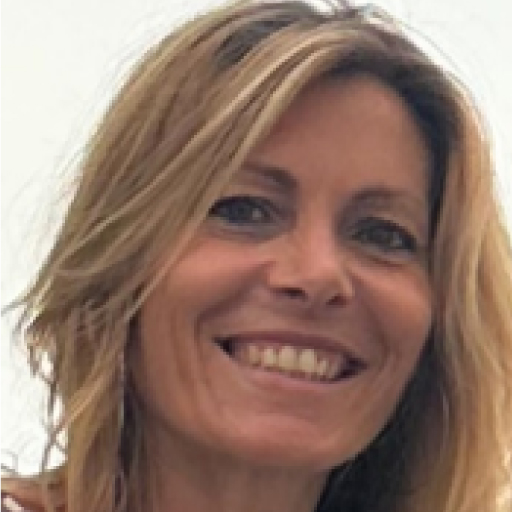di cosa parla LOST2?
LOST2 è un progetto che mira ad affrontare il problema crescente delle persone scomparse, in particolare dei giovani, in Europa. Sono circa 200.000 i bambini di cui si denuncia la scomparsa, ma solo il 33% viene ritrovato.
LOST2 intende creare un sistema europeo unificato per la ricerca e il ritrovamento di persone e minori scomparsi, creando un profilo professionale standard per gli “Esperti nella ricerca di persone e minori scomparsi”.
Il progetto mira inoltre a stabilire un livello di formazione standardizzato che sarà riconosciuto in tutti i Paesi dell’UE.
LOST2 mira a promuovere l’inclusione sociale, in particolare tra i giovani, e ad affrontare il crescente problema delle persone e dei bambini scomparsi in Europa. Con 200.000 bambini di cui è stata denunciata la scomparsa e solo il 33% è stato ritrovato, LOST2 riconosce la necessità di istituire un sistema europeo completo di ricerca. Ciò comporta la definizione di un profilo professionale di base per “Esperti nella ricerca di persone e minori scomparsi” e l’attuazione di un programma di formazione di alto livello riconosciuto in tutta l’UE.
LOST2 aspira
- Il progetto LOST mira a dare visibilità e trasparenza al profilo professionale di un consulente in analisi e ricerca di informazioni sulle persone scomparse, sia a livello nazionale che a livello europeo.
- Questo obiettivo deve essere raggiunto riconoscendo gli standard di formazione e le competenze condivise ottenute in contesti formali, informali e non formali.
- Il progetto cerca di analizzare, condividere, arricchire e definire la proposta di qualificazione, preparando infine una documentazione coerente in linea con gli standard europei per le professioni e le qualifiche.
- Ciò consentirà alle autorità nazionali e locali di verificare, convalidare e riconoscere l’apprendimento correlato in linea con gli standard della qualifica.
- Il progetto sta anche gettando le basi per la futura equivalenza della qualifica in Europa, seguendo gli standard delineati nelle recenti linee guida europee.
- Infine, il progetto mira ad ampliare le opportunità di lavoro per questi professionisti, garantendo l’utilizzabilità e la trasferibilità della qualifica in tutti i Paesi dell’UE.
LOST2 è il migliore per
Persone responsabili dell’insegnamento e della formazione di persone nell’uso di competenze tecniche, come la programmazione informatica, l’ingegneria e la meccanica. Lavorano in diversi contesti, tra cui scuole, aziende e agenzie governative.
Organizzazioni che offrono formazione e istruzione a persone che vogliono imparare un mestiere o un’abilità. Offrono una varietà di programmi, tra cui apprendistato, stage e formazione in aula.
Individui e dpt. responsabile dell’applicazione della legge e della protezione del pubblico. Lavorano in diversi contesti, tra cui agenzie locali, statali e federali.
Responsabile dello spegnimento degli incendi e dei servizi di emergenza. Lavorano in diversi contesti, tra cui vigili del fuoco, ospedali e altre agenzie di pubblica sicurezza.
È responsabile della raccolta di informazioni e della protezione della sicurezza nazionale. Lavorano in diversi contesti, tra cui agenzie governative, organizzazioni militari e aziende private.
Persone responsabili della preparazione e della risposta a disastri naturali e altre emergenze. Lavorano in diversi contesti, tra cui agenzie governative, organizzazioni no-profit e aziende.
Queste persone vengono assunte da privati o organizzazioni per indagare su una serie di questioni, come frodi, furti e persone scomparse.
Persone che utilizzano le loro competenze legali per indagare e perseguire i reati. Lavorano in diversi contesti, tra cui studi legali, agenzie governative e organizzazioni no-profit.
È responsabile di garantire che l’apprendimento delle persone sia riconosciuto e valorizzato. Lavorano in diversi contesti, tra cui agenzie governative, istituzioni educative e aziende.
Queste persone offrono volontariamente il loro tempo per aiutare a trovare le persone scomparse. Lavorano in diversi contesti, tra cui linee telefoniche dirette, squadre di ricerca e salvataggio e gruppi di sostegno.
Fornire sostegno alle famiglie delle persone scomparse e aiutarle a orientarsi nel sistema legale. Lavorano in diversi contesti, tra cui linee telefoniche dirette, gruppi di sostegno e cliniche di assistenza legale.
Queste organizzazioni sono responsabili delle indagini e del perseguimento dei reati.
Spesso sono i primi ad accorgersi della scomparsa di qualcuno. Possono svolgere un ruolo fondamentale nella ricerca di una persona scomparsa.
Queste persone rispondono alle chiamate di chi è preoccupato per una persona scomparsa. Forniscono informazioni e supporto ai chiamanti e li aiutano a connettersi con le risorse giuste.
Queste organizzazioni sono responsabili della gestione dei flussi di persone in entrata e in uscita da un Paese. Lavorano in diversi contesti, tra cui agenzie governative, ambasciate e consolati.
Queste organizzazioni sono responsabili della tutela dei diritti dei bambini che non sono in grado di badare a se stessi. Lavorano in diversi contesti, tra cui le case famiglia, gli affidamenti e le agenzie di adozione.
Queste organizzazioni lavorano per proteggere i diritti dei bambini e per prevenire gli abusi e l’abbandono dei minori. Lavorano in diversi contesti, tra cui scuole, ospedali e comunità.
Queste organizzazioni forniscono sostegno agli immigrati e li aiutano a orientarsi nel sistema legale. Lavorano in diversi contesti, tra cui cliniche di assistenza legale, centri comunitari e agenzie di servizi sociali.
Queste persone rappresentano gli interessi dell’Unione europea nelle questioni relative alle libertà civili, alla giustizia e agli affari interni. Lavorano in diversi contesti, tra cui il Parlamento europeo, la Commissione europea e il Consiglio dell’Unione europea.
Queste persone conducono ricerche su una varietà di argomenti legati alle libertà civili, alla giustizia e agli affari interni. Lavorano in diversi contesti, tra cui il Parlamento europeo, la Commissione europea e il Consiglio dell’Unione europea.
È responsabile dello sviluppo e dell’attuazione delle politiche relative alla giustizia e ai diritti delle persone.















